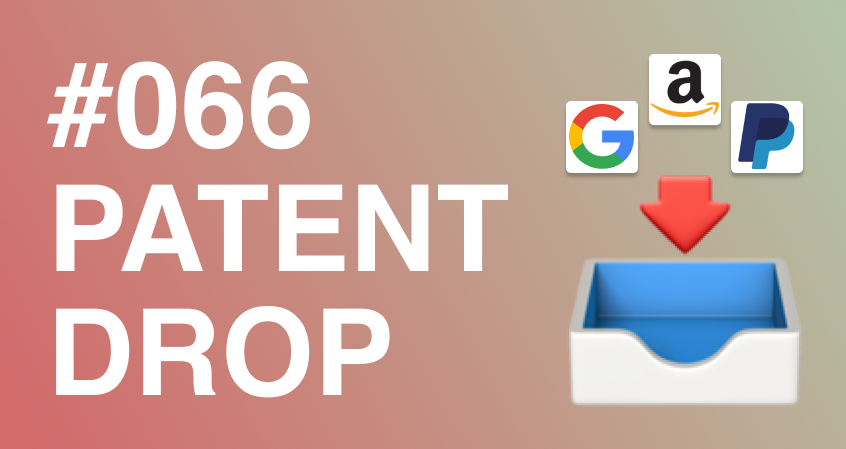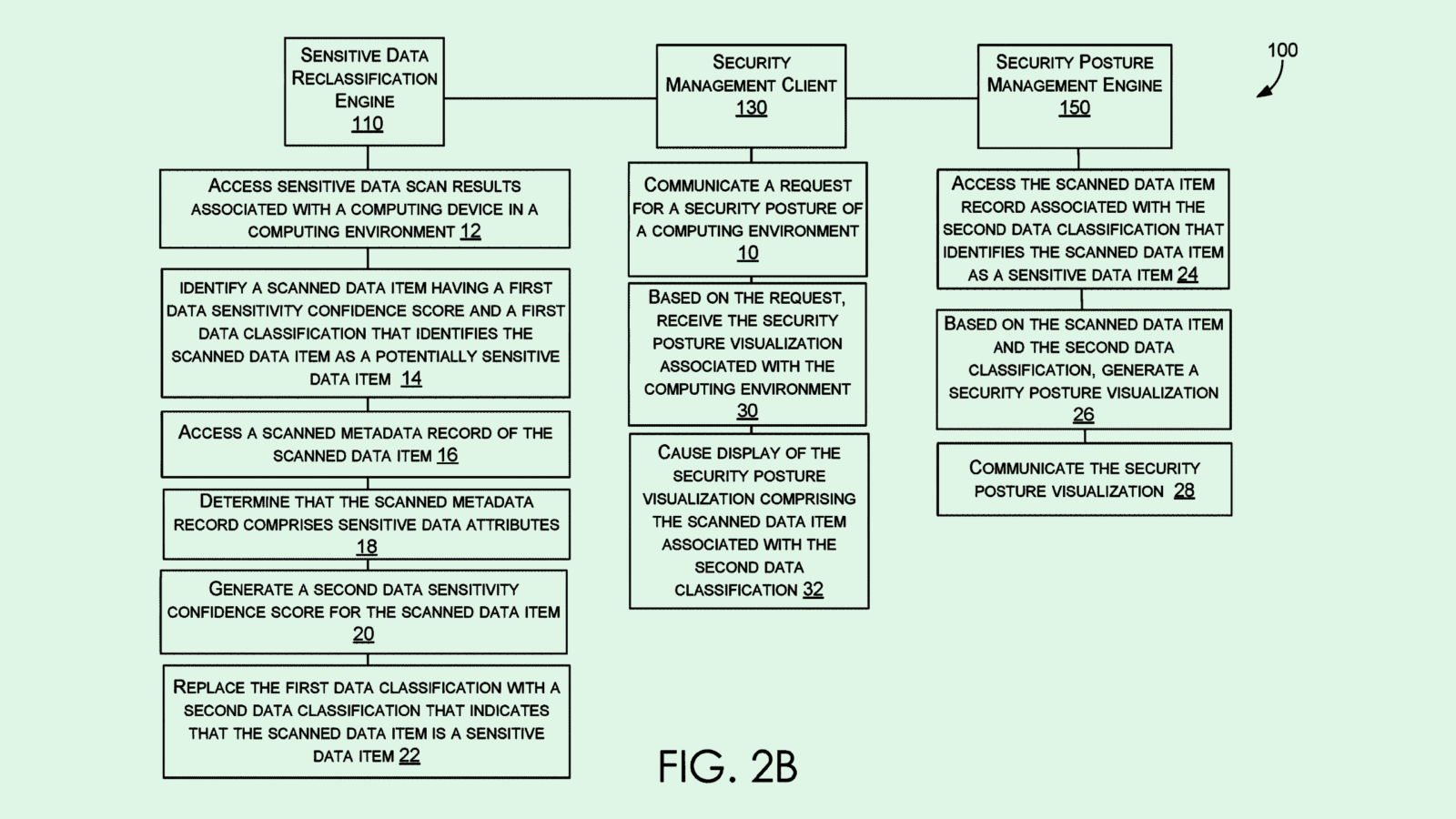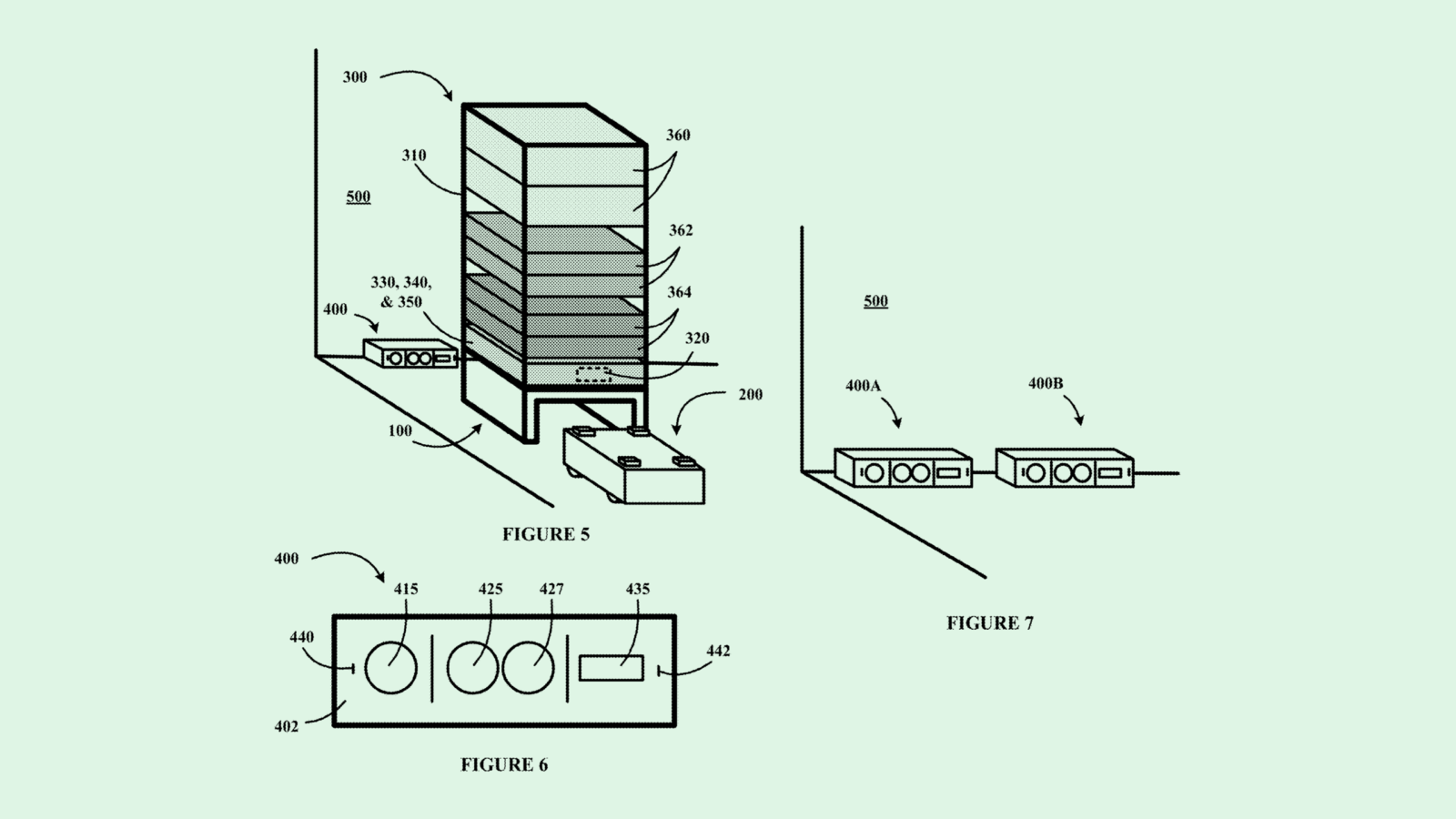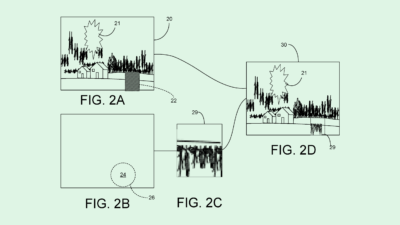Sign up to uncover the latest in emerging technology.
Plus: PayPal is going in on green crypto; Google is making a family-friendly smart home
Happy Tuesday and welcome to Patent Drop!
Today’s Patent Drop is brought to you by Skyflow. They’ve hooked you up before with Five Common Data Privacy Pitfalls And How To Avoid Them, and now they’re back to help you navigate the complexities of data residency (more on that below). Schedule a demo of Skyflow’s Data Privacy Vault right here and see how they can help your business expand into new regions while achieving compliance.
Today, we’re diving into Amazon’s potential plan to turn your Roomba into an Alexa, PayPal’s plans for environmentally-friendly crypto, and Google’s tech to cut through the noise. Let’s take a peek.
#1. Amazon’s robot butler
Amazon wants to give you a robot that listens. Like, really listens.
The company is seeking to patent an “autonomously motile device” that responds to speech commands. Some of the potential commands Amazon outlines include asking it to play music or other audio, recording audio using one of its microphones, and displaying images on the device’s little screen. This device would take commands after hearing a “wakeword;” a word or phrase that activates it.
This device would also likely need to learn the layout of your home in order to navigate. For instance, if you ask it to go to the kitchen, it will need to learn where your kitchen is located.
“An autonomously motile device may be capable of moving or performing other actions within an environment,” Amazon said in its filing. “Speech-recognition processing, combined with natural-language understanding processing, may enable speech-based user control and output of the autonomously motile device to perform tasks based on a user’s spoken commands.”
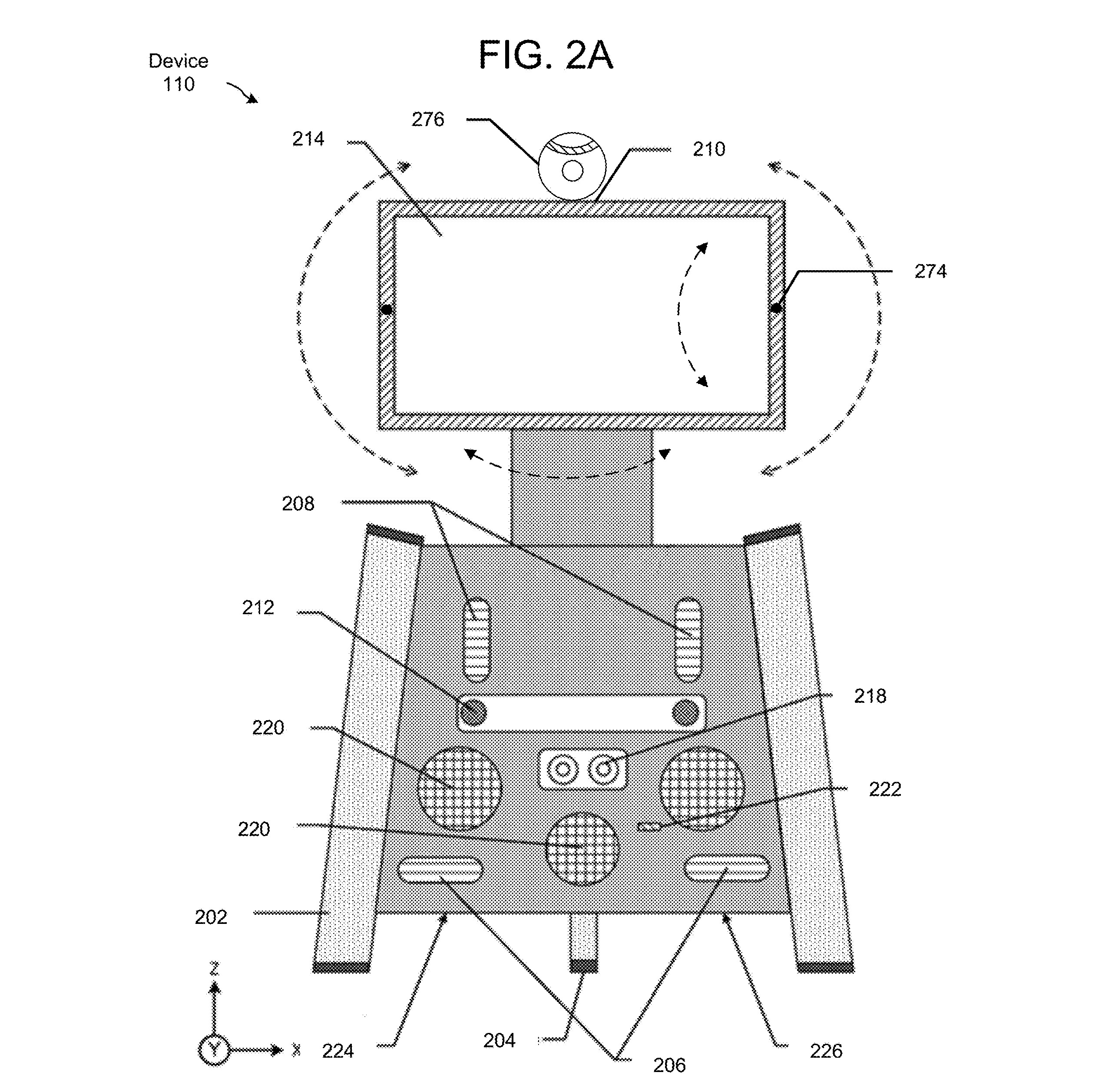
The art in the patent makes this device look a bit like something out of the movie Wall-E. But Amazon notes in the filing that the actions this device can take aren’t limited to the provided examples, which means these high-tech ears could be put to use in something more commonly found in the average household than a robot butler: a Roomba.
The company filed this patent application in late July, around a week before it went public with its $1.7 billion acquisition of Roomba manufacturer iRobot. This tech could reveal a bit more about Amazon’s intentions with the acquisition, potentially signaling that the company wants to put Alexa into your robot-vacuums.
Amazon received a hefty amount of backlash following the acquisition, with experts and advocates calling out antitrust and privacy concerns of Amazon capturing and holding onto data about your home’s layout. In a letter to the FTC in September, a group of more than two dozen advocacy groups said Amazon “aims to minimize fair competition by exploiting consumer data not accessible to other market participants.”
iRobot co-founder and CEO Colin Angle addressed concerns in a Linkedin post in August, saying the company “does not – and will not – sell customers’ personal information.”
Amid the rising concern, the FTC began probing the acquisition in September, and Democratic lawmakers have called on the agency scrutinize it further. Last week, Financial Times reported that EU regulators were set to investigate the deal.
“We’re working cooperatively with the relevant regulators in their review of the merger,” an Amazon spokesperson told Reuters.
The iRobot deal alone was enough to spark backlash over privacy issues. If the company plans to integrate Alexa-grade speech recognition, it could be met with an even bigger dose of skepticism from consumers.
#2. PayPal’s electric bill
PayPal wants to go green by charging its crypto users for electricity.
The company is seeking to patent a “carbon neutral blockchain protocol” that aims to resolve “carbon offsetter payments” for crypto transactions. Here’s how it works: PayPal is creating what it calls “green wallets” that help to offset carbon emissions generated by crypto transactions made on its platform. If all or a portion of the crypto is “designated as “green” cryptocurrency,” then the user will be required to pay a fee to a “carbon offsetter” agency, such as organizations that plant trees, engage in renewable energy projects or “other projects designed to reduce carbon emissions.”
To pay for the energy that’s used in crypto transactions, PayPal essentially passes the fee onto the users, similar to how car manufacturers pay for carbon credits if they can’t meet their electric car quotas.
“Requesting cryptocurrency transaction processing on a blockchain network is not carbon neutral and instead may lead to significant pollution and/or carbon waste,” PayPal said in its application. “Thus, it is desirable to offset this waste when processing cryptocurrency transactions.”
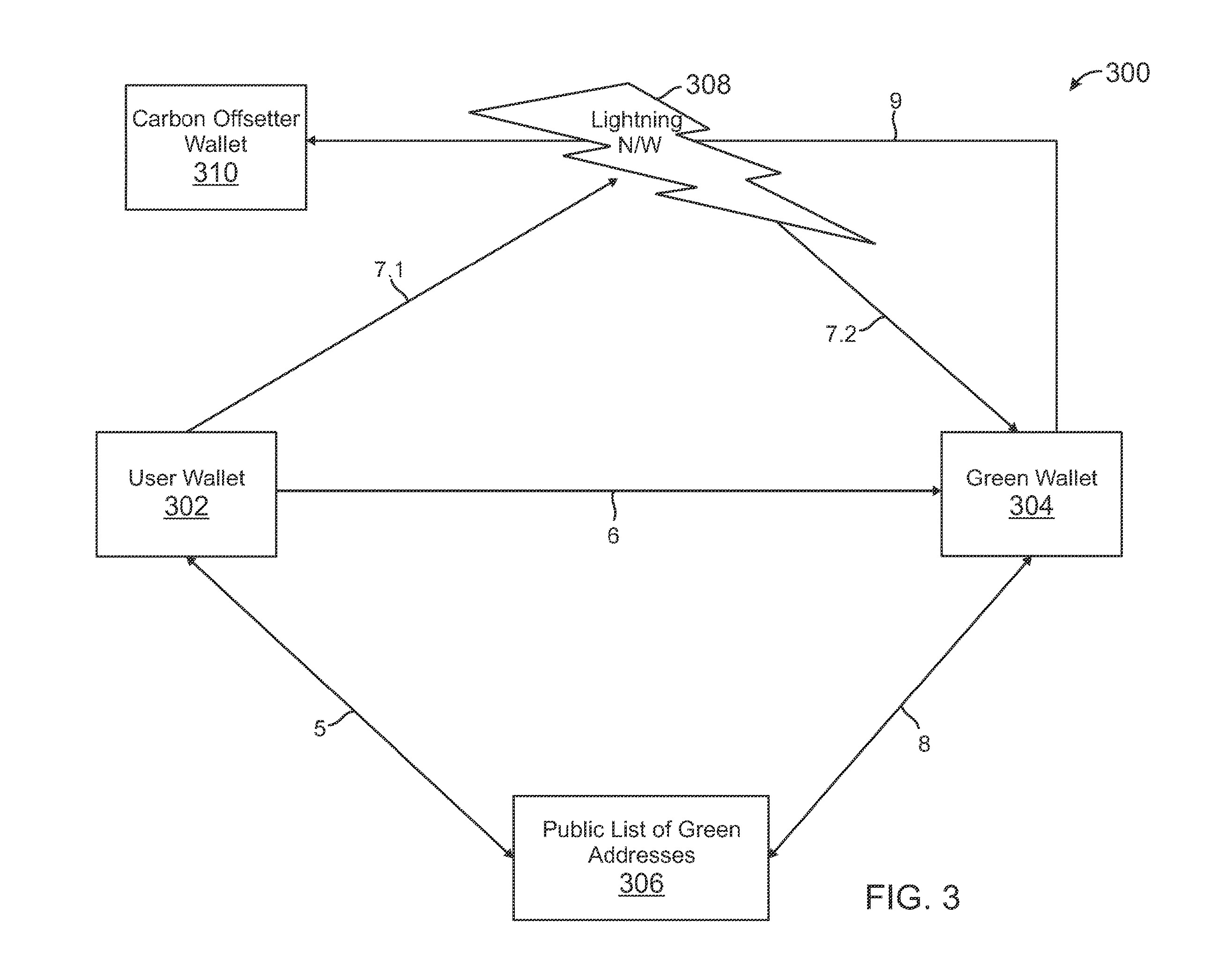
This isn’t PayPal’s only attempt at going green. In the months before this patent was originally filed, the company announced an ambitious goal to reach net-zero greenhouse gas emissions by 2040, with plans to use renewable energy for data centers, cut operational carbon emissions and only work with suppliers that share similar goals. PayPal’s patent could be a key part of its plan to reach that goal.
“At PayPal, we understand that achieving climate stability is vital to fulfilling our mission to drive financial health and inclusion for all global citizens,” PayPal CTO Sri Shivananda said at the time. “Environmental sustainability is critical when it comes to managing our impact, mobilizing our workforce, and driving innovation on our platform.”
As crypto has risen in popularity, so has the backlash against it for excessive energy use and carbon emissions. Some estimates show that crypto activity in the U.S. uses up 120 to 240 billion kilowatt-hours per year, with emission levels similar to that of diesel fuel used by the entire U.S. railroad. This activity “has the potential to have a large negative environmental effect,” Eaven Portillo, Co-Founder and COO of Sortium, told me in an email.
“The development of more energy-efficient consensus algorithms and the growing usage of renewable energy sources for cryptocurrency mining are two initiatives that are being made to solve these issues,” Portillo said.
While PayPal isn’t developing green blockchain protocols itself, offsetting the carbon usage of its users could go a long way in combating crypto’s pollution – or at least could deter some users from trading crypto at all.
SPONSORED BY SKYFLOW
The Who, What, and Why of Data Residency
Data residency is when your favorite statistic moves to Barcelona for a year to “find itself”.
Kidding.
In actuality, data residency is when a country requires that its citizens’ data reside in that country – meaning it plays a crucial role for any business looking to expand into new geographies. But before you attempt to handle this complicated and nuanced issue for yourself, you’ve gotta check out Skyflow.
Skyflow’s Data Privacy Vault allows you to store and access sensitive data where you need it, when you need it, however you need it.
It’s a must-have for any company looking to expand into new regions, and you can get a free demo of it right here.
#3. Smart Home for the whole family
Google wants to get to know you… and the people you live with.
The company filed a patent for “multi-user personalization” of a voice activated device. To break it down, this system compares voices commonly heard in a household to each other and, depending on who it determines is speaking, “authenticating an occupant and presenting a response, or restricting functionality of the electronic device.”
For example, if one occupant asks the smart home to play their workout playlist, the device can identify who is asking and play a playlist they specifically made. If another occupant instructs the device to add something to a shopping list, it will add the item specifically to their shopping list.
“Accordingly, there is a need for an electronic device with a voice assistant system and/or a voice assistant server system that incorporates methods and systems for handling multiple users, for multi-device coordination to determine a leader, and for noise mitigation,” Google said in its application.
Another problem this tech tackles: nosy house guests. Google’s tech has the ability to restrict functionality to unidentified users, either entirely or so that it does not pull from “personal or private information” in its responses. (This could also be a good function for the little ones: If a young child asks a smart home a million questions, or to make fart sounds, it doesn’t have to respond.)
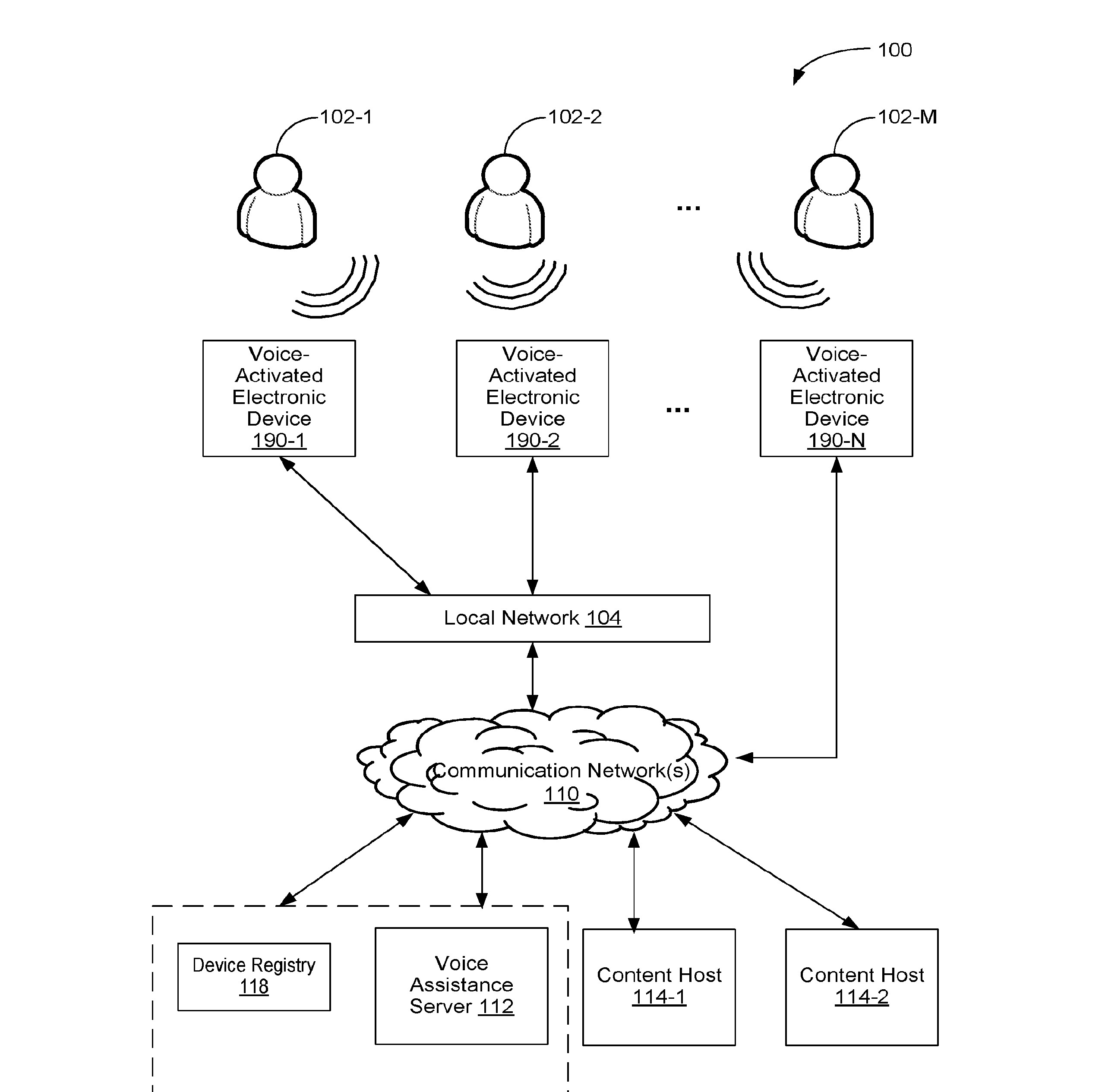
Google is attempting to solve a running theme that’s come up in Patent Drop before: Several Big Tech firms are working on speech recognition technology that can get to know your quirks, your habits and the context of your life. But how can a speech recognition device really get to know you if it can’t make sense of the noise of an entire family?
Google’s tech has the potential to organize and make sense of a typical family’s cacophony – whether that be a parent’s request to add sugar to the shopping list or a toddler’s screams to play the “Paw Patrol” theme song on repeat.
“As the devices are more than ever configured to be capable of accessing and presenting user-specific information, it is desirable for a voice assistant device to be able to handle multiple users gracefully and be able to provide user-specific information to the appropriate user,” Google said in its application.
This patent application is fairly recent – filed just in November – but if Google can make this tech work and release it to the public, it could be a major step in making context-driven and personalized AI a household norm.
But like lots of customizable devices hitting the market these days, this tech could come with privacy concessions. While an ultra-personalized smart home can make the day-to-day life easier, this kind of personalization requires your device to get to know your household intimately. The trade-off for convenience? Allowing Google access to a mountain of you and your family’s personal data.
Extra Drops
But wait, there’s more!
Ford wants your car to trick outsiders. The company filed a patent for “projection on a vehicle window.” Essentially, the tech projects an image on a window, viewable from the outside, “depicting a second person inside the vehicle.” For what purpose? Ford didn’t say.
Intel wants to give your workplace a robot sidekick. The company seeks to patent a robot that can predict “human movement in shared workspaces” in real time. This tech could be helpful to avoid spills, breaks or mistakes in lab scenarios, but probably wouldn’t be as useful in your typical office environment.
Snap’s going hands-free. The company filed a patent for “remoteless control of drone behavior,” essentially allowing a user to control a drone with voice commands. This tech could be integrated into the Snap Pixy drone, allowing drone photographers to take photos with their hands in their pockets.
What else is new?
The Supreme Court is set to hear arguments in the Gonzalez V. Google case, a groundbreaking case which could disrupt the future of Section 230.
Microsoft inked a deal with Nintendo to bring “Call of Duty” to Nintendo’s gaming division as part of its aim to convince regulators to approve its acquisition of Activision.
Amazon workers are reportedly being paid significantly less than a year ago, as a big cut of their paycheck comes from the company’s slumping shares.
Get ready to wiggle: We’re not talking about some new dance move, but this emerging tech startup does have the Department of Defense doing a little jig. WiGL, the potential frontrunner of the wireless charging movement, is trailblazing a future where you can charge your devices anywhere, without any wires. The benefits? Greater mobility, cleaner energy, and more security. Not only did WiGL and its over-the-air power grid score a boatload of government contracts, but it’s the first Reg CF on StartEngine to hit the $5M cap. Join the no-cord movement, invest here.*
*Partner
Have any comments, tips or suggestions? Drop us a line! Email at admin@patentdrop.xyz or shoot us a DM on Twitter @patentdrop.
Disclaimer:
**Offering Circular
Related Risks
This Reg A+ is made available through StartEngine Primary, LLC, Member of FINRA/SIPC. This investment is speculative, illiquid, and involves a high degree of risk, including the possible loss of your entire investment.
